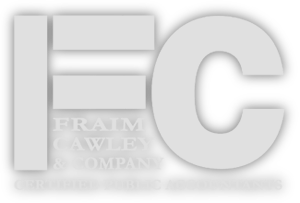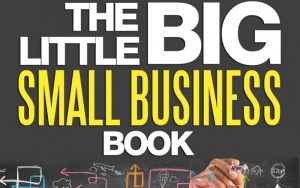Originally published August 6, 2013
Ted: What if I don’t think of the books?
Robin: Excuse me?
Ted: There’s this famous architecture story about this architect who designed this library. It was perfect. But every year, the whole thing would sink a couple inches into the ground. Eventually the building was condemned. …He forgot to account for the weight of the books. This company…it’s just me. What if I don’t think of the books?
In this conversation between two of the main characters in How I Met Your Mother, Ted Mosby worries about the future of his fledgling architecture firm. The story he cites has proven to be urban legend, but it does illustrate an interesting point: the most elementary things can sometimes escape us. The simplest mistake can “sink the library” as it were.
The areas where this can happen are frighteningly prevalent. A misunderstanding of tax law or mistakes in tax filings can cost a company thousands and thousands of dollars. Poor hiring decisions can haunt a company for years. The examples are too numerous to even list. But there is one area that affects every business regardless of size, location, or industry.
Cash (by “cash” I’m not talking about actual paper money. Cash as a business term means liquid funds in a bank account or money market fund that are available for use by the business.) No matter how much we love what we do, we are in business to make a profit. Without profits a business cannot survive of course, and unless one is independently wealthy, we business owners cannot continue in our chosen field or craft – no matter how fulfilling we might find them. At the end of the day, this is what business is all about.
Very closely related to profits in a business is the critical matter of cash flow. The two are related, but are not exactly the same thing. As an example, think of someone who owns a business buying and selling rare baseball cards. Perhaps that business buys an inventory of these collectible cards and two years later their value has risen dramatically. A great profit! Successful business, right?
Hmm…but what if the business didn’t have enough cash on hand or day-to-day sales coming in to pay rent, employee salaries, etc. while waiting for those lovely baseball cards to go up in value and be sold for a profit? The business could be forced to close prematurely and never get to achieve those profits.
CASH FLOW – it is the fuel that powers the engine of businesses and allows them to reach profitability. And yet, proper cash flow planning remains one of the most overlooked and under-planned aspects of many businesses.
Fifty percent of small businesses fail within the first five years. Fifty percent. And it is not because the business owners do not work hard or know their industry. It is often because they forget “the books” – usually involving a miscalculation regarding their cash flow.
This is one of the things I consistently see with small businesses. Good ideas, great craftsmen – but they have failed to do a thorough budget or cash flow projection. And if they have failed to do this, expenses are seriously underestimated or future revenue considerably overestimated. Business owners assume employees will be productive 100% of the time. They forget about unemployment taxes, workers’ comp, and the employer half of FICA taxes when calculating the cost of hiring an employee. They might forget about the cost of different insurances they have to carry or that many utility companies require a 3+ month deposit when service is switched. Software upgrades, equipment purchases, vehicle gas getting to jobs, and general office supplies are not properly accounted for. And virtually everyone assumes that their services will be more in demand in the beginning than is the reality. And they further assume that demand will grow faster than it truly will.
None of these are unforgivable sins. Heck – some are even natural. We believe we provide the best service/product and at the best price. Why wouldn’t people be flocking to us from the very beginning? And we are absolutely delightful people – of course our employees are going to work hard for us! And the other expenses are easy to let slip through the cracks when we are planning.
But if you combine a few of those things together, you have a company that is severely cash strapped, illiquid, and in danger of going under. All of which could have been avoided with some simple planning at the outset. That is why I always advise businesses to create a comprehensive budget and cash flow projection before undertaking any venture. The relatively small cost of the service will pay you dividends for years to come. It may even save your business from avoidable catastrophe.
As always, if you have any questions whatsoever or would like to talk please visit me online at FraimCPA.com or call me at (540) 314-0345.
IRS Circular 230 Notice: To ensure compliance with requirements imposed by the IRS, we inform you that any federal tax advice contained in this communication (including any attachments) is not intended or written to be used, and cannot be used, for the purpose of avoiding penalties under the Internal Revenue Code.




